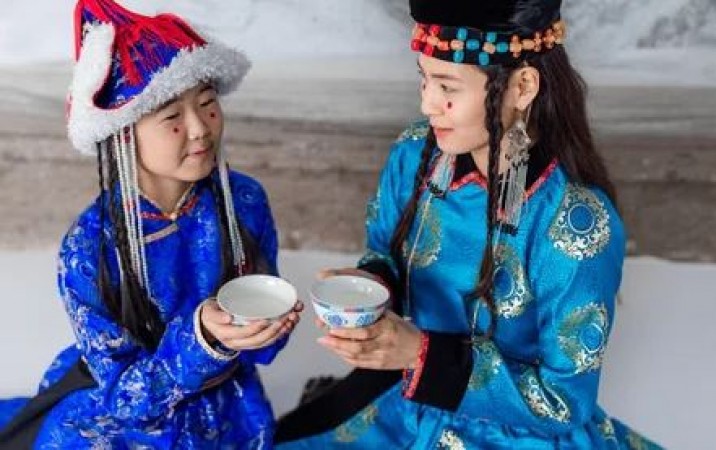
In the vibrant tapestry of human culture, festivals stand as vivid threads, weaving tales of traditions, values, and shared experiences. If you're passionate about imparting cultural lessons to children, adopting creative methods can transform learning into an engaging celebration. Let's delve into effective approaches to infuse the richness of festivals into educational endeavors.
Immerse yourself in the enthusiasm of festivals. Channel the contagious energy to create a lively and welcoming atmosphere for children.
Narrate folklore and legends related to the festival. Use expressive storytelling techniques to captivate young minds.
Encourage children to participate in storytelling. This fosters a sense of connection with the narrative and enhances retention.
Engage in hands-on crafting activities that reflect traditional art forms associated with the festival. This promotes creativity and appreciation.
Involve children in making decorations for the festivities. This not only enhances artistic skills but also instills a sense of pride in contributing to the celebration.
Explore the culinary delights tied to the festival. Cooking traditional dishes together introduces children to diverse tastes and fosters an understanding of cultural practices.
Expand horizons by exploring festivals from various cultures. Integrate a global perspective into culinary experiences for a broader understanding.
Introduce traditional music and dance forms associated with the festival. This not only provides a fun outlet but also connects children with the cultural heartbeat.
Encourage children to express themselves through dance. This promotes physical activity while fostering an appreciation for cultural diversity.
Collaborate with experts to conduct workshops on the cultural significance of the festival. Invite local artists, storytellers, or historians to share their knowledge.
Transform learning into an interactive experience. Allow children to actively participate in workshops, making the cultural exploration more memorable.
Utilize technology to connect with classrooms around the world celebrating similar festivals. This virtual exchange broadens perspectives and fosters cultural understanding.
Initiate pen pal programs between children from different cultural backgrounds. This personal connection enhances cross-cultural communication skills.
Organize field trips to cultural sites, museums, or local festivals. Real-world experiences amplify the impact of theoretical learning.
Connect festivals with nature. Arrange outdoor activities that align with the seasonal and environmental aspects of the celebration.
Introduce basic phrases and greetings in the language associated with the festival. This promotes language diversity and cultural appreciation.
Incorporate language games that make learning fun. Games like word searches or language bingo can engage children while reinforcing cultural terms.
Encourage children to maintain reflective journals. This provides a space for them to express their thoughts, feelings, and newfound cultural insights.
Facilitate group discussions based on journal entries. This creates a supportive environment for sharing and learning from each other.
Ensure that your cultural lessons embrace diversity. Highlight the similarities and differences, fostering an inclusive understanding of various cultures.
Incorporate anti-bias education principles to address stereotypes and prejudices. Promote a mindset of respect and acceptance.
Implement project-based learning that allows children to delve deep into the cultural aspects of a festival. This hands-on approach enhances critical thinking and research skills.
Conclude projects with presentations. This hones communication skills and gives children an opportunity to showcase their cultural discoveries.
Encourage families to participate in cultural activities. This creates a holistic learning environment that extends beyond the classroom.
Organize showcases where families share their unique cultural practices. This promotes a sense of community and mutual understanding.
Explore educational apps that provide interactive insights into festival traditions. This modern approach complements traditional teaching methods.
Immerse children in virtual reality experiences related to festivals. This innovative technique enhances engagement and understanding.
Incorporate mindfulness practices tied to festival traditions. This not only promotes well-being but also deepens the connection to cultural roots.
Include guided meditations that focus on the cultural significance of the festival. This encourages reflection and introspection.
Use festivals as a platform to impart timeless values such as empathy, kindness, and gratitude. Relate these values to cultural narratives for a profound impact.
Demonstrate these values through your actions. Children learn not just from what is said but also from what is practiced.
Collaborate with community organizations for cultural exchange events. This expands the learning beyond the classroom and fosters community connections.
Organize art exhibitions showcasing children's creations inspired by festival themes. This celebrates their creativity and cultural exploration.
Adapt your teaching methods to suit the diverse learning styles of children. This ensures that cultural lessons resonate with each individual.
Create a flexible curriculum that allows for spontaneous exploration based on the children's interests and questions.
Integrate cultural lessons into the curriculum throughout the year. This continuous exposure deepens understanding and appreciation.
Seek feedback from children and parents. This iterative process enhances the effectiveness of your cultural teaching methods.
Promote eco-friendly celebrations. Integrate lessons on sustainability and environmental consciousness into festival-related activities.
Engage children in projects that contribute positively to the community. This instills a sense of responsibility and community service.
In conclusion, teaching cultural lessons through festivals is a dynamic and rewarding endeavor. By embracing creativity, interactive methods, and a holistic approach, educators can foster a deep appreciation for diversity and tradition in the hearts of the younger generation.
Central Government Urges States to Review Health Preparedness Amid China's Pneumonia Spike
Economic Powerhouse: India Ranks 4th in Global Forex Reserves !
Gender Disparities Emerge: Critique on Women's Representation in UP Congress